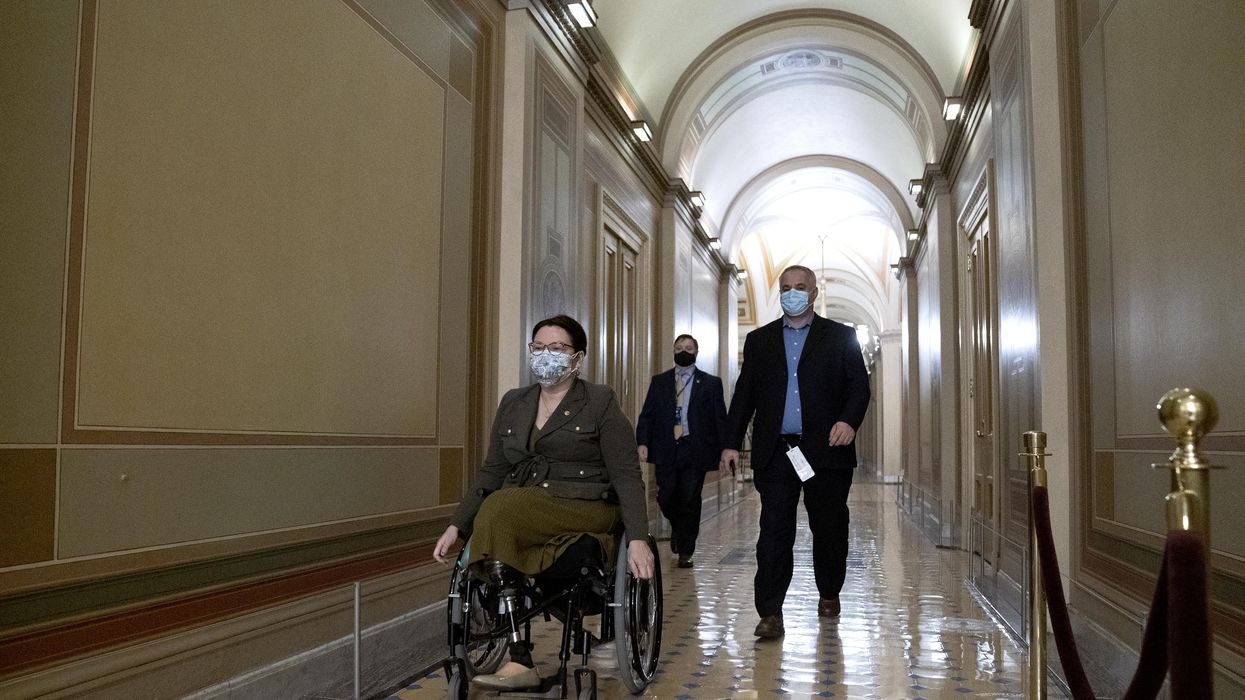Authors' note: Some Disabled people use a capital D to denote community, the way one might write "Black person" or "Deaf person." In this article, we do the same where appropriate, so "Disabled" denotes a connection to the community, and "disabled" is simply an adjective.
Today, 25 percent of American adults experience some type of disability, and the Disabled community continues to grow. Research has shown the number of eligible Disabled voters increased by more than 10 percent between 2008 and 2016. Over the past few decades, the United States has passed many legislative bills supporting equitable voter access and signed the U.N. Convention on the Rights of Persons with Disabilities. Despite this, the number of disabled politicians is a staggeringly low 10 percent of sampled U.S. elected officials.
Women with disabilities are even more invisible. Although the CDC has found disability is more prevalent among women than men, Disabled women experience roughly double the rate of electoral underrepresentation than their male counterparts. Why?
RepresentWomen's latest report answers that question and identifies numerous structural barriers that prevent Disabled people from participating in U.S. politics.
A 2017 report by the Government Accountability Office found that 60 percent of the 178 assessed polling locations had one or more barriers for Disabled voters. Meaning that, while the number of eligible Disabled voters is on the rise, they can't exercise their right to vote due to issues like the absence of a wheelchair ramp, an elevator or poll workers trained on accessible voting materials. This has serious negative impacts on their electoral representation.
High unemployment within the Disabled community ( 82.1 percent in 2020) and low socioeconomic status are a significant barrier for Disabled candidates. The high cost of U.S. political campaigns can often dissuade Disabled people from considering a run for office in the first place. Political parties even use these financial constraints to justify inaccessibility rather than remove the institutional roadblocks that Disabled candidates face. As a result, Disabled candidates can become alienated from their political parties. They will often have to cover accessibility costs themselves, which forces them to rely on informal support, opt out of key events or both.
Disabled women face additional and unique obstacles tied to their "intersectional disempowerment," a term coined by Dr. Kimeberlé Crenshaw meaning Disabled women face discrimination related to their disability and gender-related hurdles such as competency bias, distorted media coverage and the male incumbency advantage. Many also experience more layers of difficulties related to their intersectional identities, such as race-related barriers. Then, it becomes less surprising that of the 13 Disabled officials in the federal government, only three are women.
So, how can we improve elected representation for the Disabled community and, more specifically, Disabled women? Our report believes that political parties are critical gatekeepers to elected office, but their inadequate engagement with Disabled voters and candidates has contributed to the underrepresentation of the Disabled community. To reduce the persistent turnout gap between disabled and non-disabled voters, political underrepresentation of the Disabled community, and the gender gap within that underrepresentation, our report suggests a myriad of action items for political parties to adopt, such as accessibility funds and recruitment quotas.
Disabled voters, candidates and officials deserve an equal right to political representation — let's move beyond promising equity and focus on enacting it.



















Trump & Hegseth gave Mark Kelly a huge 2028 gift